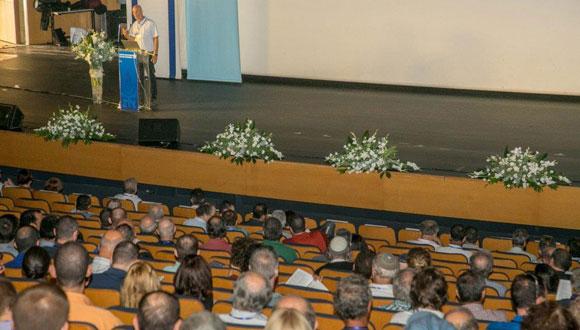Physics Colloquium: Quantum Dot Physics Using Atomic Defects in Ultrathin Tunnel Barriers
Hadar Steinberg, HUJI
Zoom: https://tau-ac-il.zoom.us/j/83476132371?pwd=NHZKL0N0ZHFQNFVka3BEaVJhVUI0Zz09
Abstract:
Quantum dots (QDs) are conducting regions which can localize few charge carriers, and where the energy spectrum is dominated by Coulomb repulsion. QDs can be as large as few hundreds of nanometers, or as small as a single molecule, their sizes depending on their physical realization – whether in two-dimensional materials, nanowires, molecular systems.
In my talk I will describe our work on a new type of an atomically-sized QD, realized in defects residing in ultrathin two-dimensional insulators. These defect-dots are found in layered materials such as hexagonal Boron Nitride (hBN), which we study by their assembly into stacked devices. By using graphene electrodes, we are able to electronically couple to the QD, while allowing the QD energy to be externally tuned exploiting the penetration of electric field through graphene.
A consequence of the structure of our devices is that the defect QDs are placed at atomic distance to the conductors on both sides. I will show how the presence of such energy-tunable, atomically sized QDs at nanometer proximity to other conducting systems opens new opportunities for sensitive measurements, including use of QDs as highly sensitive spectrometers [1], or as single electron transistors, unique in their sensitivity to local electric fields at the nanometer scale [2]. I will discuss our future prospects of using defect QDs as quantum sensors.
References:
-
Devidas, T.R., I. Keren, and H. Steinberg, Spectroscopy of NbSe2 Using Energy-Tunable Defect-Embedded Quantum Dots. Nano Letters, 2021. 21(16): p. 6931-6937.
-
Keren, I., et al., Quantum-dot assisted spectroscopy of degeneracy-lifted Landau levels in graphene. Nature Communications, 2020. 11(1): p. 3408.
Event Organizer: Dr. Hadas Soifer


